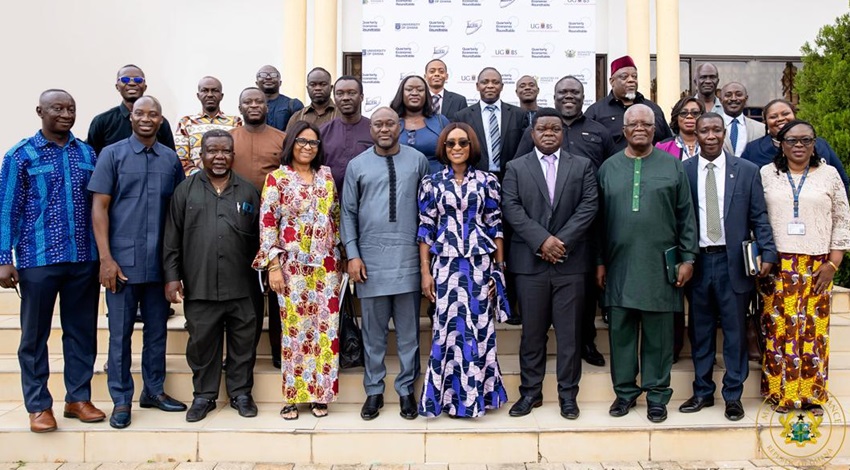Advertisement
Head
of
the
Department
of
Economics
at
the
University
of
Ghana,
Prof.
William
Baah-Boateng,
has
called
for
prudent
expenditure
management
by
the
managers
of
Ghana’s
economy.
He
said
this
when
the
Finance
Ministry
in
collaboration
with
the
University
of
Ghana,
convened
a
Quarterly
Economic
Roundtable
at
the
University
of
Ghana
on
Monday.
Perof
Baah-Boateng
said
“We
need
to
take
a
very
good
look
at
the
expenditure
side
of
the
budget.”

Prof.
Baah-Boateng
suggested
reducing
the
weight
of
government
on
the
economy
and
reevaluating
the
role
of
politics
in
economic
decisions.
On
the
topic
of
debt
dynamics,
Prof.
Peter
Quartey,
Director
of
the
Institute
of
Statistical,
Social
and
Economic
Research
(ISSER),
provided
insights
into
Ghana’s
borrowing
patterns.
He
highlighted
the
shift
from
multilateral
debts
to
commercial
market
borrowing
at
higher
interest
rates.
“We
want
to
break
from
the
vicious
cycle
of
debt
accumulation
and
then
negotiation,
forgiveness,
and
then
we
go
back
again
to
debt
accumulation,”
Prof.
Quartey
emphasized.
The
roundtable
also
addressed
monetary
policy
dynamics,
with
Professor
Agyapomaa
Gyeke-Dako
of
the
University
of
Ghana
Business
School
discussing
the
challenges
faced
by
Ghana’s
Central
Bank.
She
raised
critical
questions
about
the
effectiveness
of
current
monetary
policy
approaches
and
the
trade-offs
involved
in
managing
inflation
and
supporting
economic
growth.
The
discussions
revealed
a
consensus
on
the
need
for
a
more
collaborative
approach
to
economic
management.
Participants
agreed
that
addressing
Ghana’s
economic
challenges
requires
a
combination
of
fiscal
discipline,
innovative
debt
management
strategies,
and
carefully
calibrated
monetary
policies.
The
Finance
Ministry’s
initiative
to
engage
academia
in
economic
policy
discussions
marks
a
significant
step
towards
more
inclusive
and
informed
decision-making.
As
Ghana
navigates
its
economic
challenges,
the
insights
and
recommendations
from
this
roundtable
are
expected
to
play
a
crucial
role
in
shaping
future
policies
and
strategies
for
sustainable
economic
growth.


